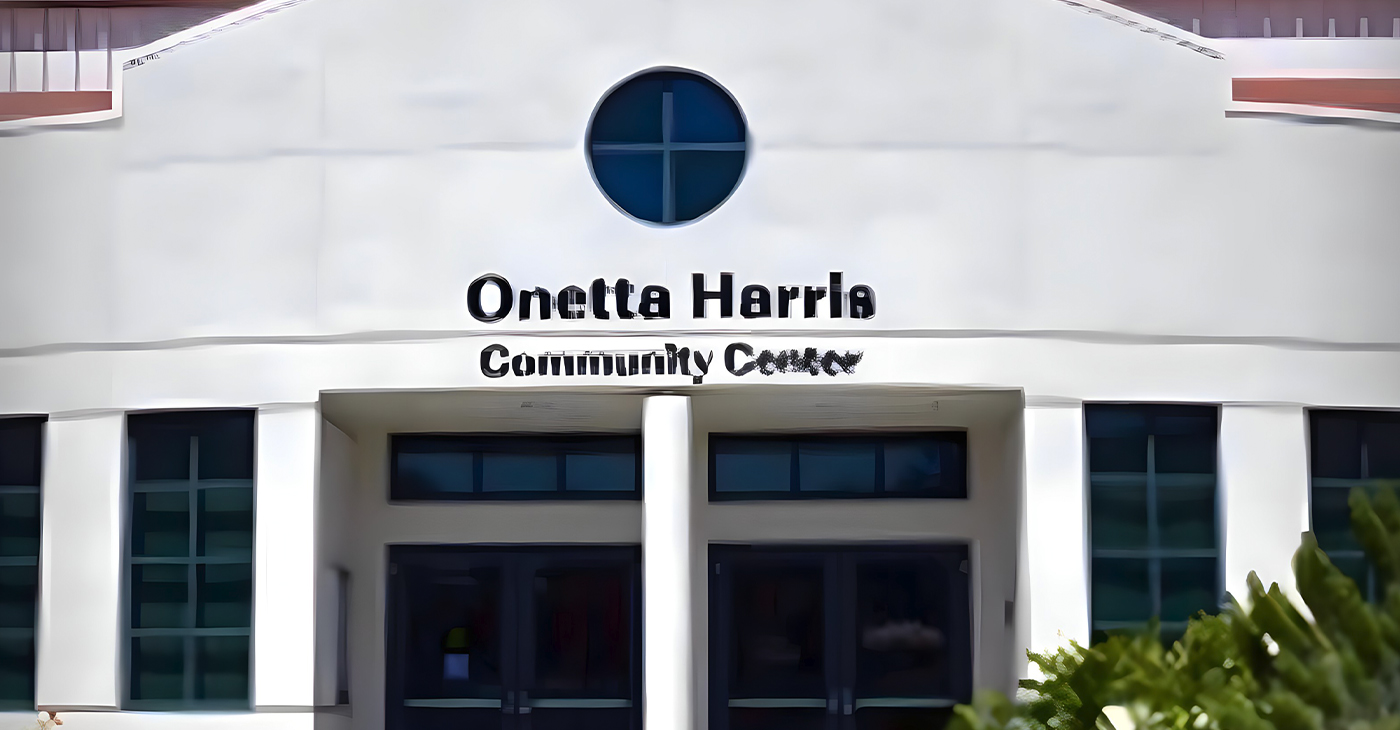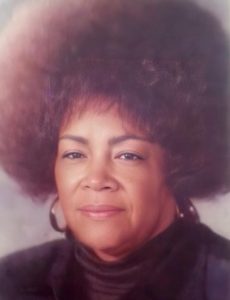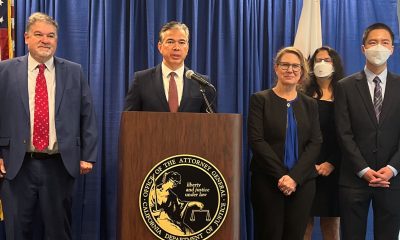Bay Area
Menlo Park Residents Fear Loss of Onetta Harris’ Legacy in Facebook Offer to Overhaul Community Center
The legacy of a renowned Belle Haven organizer and advocate is under threat as the City of Menlo Park prepares to review suggestions for names of a new community center to replace the one named for Onetta Harris in 1983. A beloved community worker in the Belle Haven district of Menlo Park, Harris passed away in 1982.

By Tanya Dennis
The legacy of a renowned Belle Haven organizer and advocate is under threat as the City of Menlo Park prepares to review suggestions for names of a new community center to replace the one named for Onetta Harris in 1983.
A beloved community worker in the Belle Haven district of Menlo Park, Harris passed away in 1982.
A member of the Belle Haven Advisory Board, Harris had also chaired the Neighborhood Housing Service, a housing rehabilitation agency, co-founded and served on the Charles Drew Medical Center with her husband, Israel Harris, and was an assistant to the principal at Belle Haven Elementary School.
She helped with voter registration and distributed food baskets during the holidays. On a personal level, Harris saved the lives of numerous Belle Haven youth with wise council and support, taking many into her home to live with her.
After receiving a petition from local residents, the Menlo Park City Council voted unanimously to name their community center the Onetta Harris Community Center in 1983.

Onetta Harris. Courtesy of Ken Harris.
In 2019, Facebook entered into a joint agreement with the City of Menlo Park to redevelop the property that housed the Onetta Harris Community Center, promising to fully fund a new “state-of-the-art” community center with a library, senior center, youth center, gym, and multipurpose room.
At the time, Menlo Park Mayor Ray Mueller lauded the tech company’s proposal.
“Facebook’s proposal, to wholly fund the building of a new state of the art community center and library in Belle Haven, represents a significant and impactful investment in the quality of life of Menlo Park residents, and significantly District 1 residents,” he said. “It would be insincere for me to pretend it isn’t the type of project that fosters appreciable trust from the community in Facebook’s long-term commitment to its neighbors and the City of Menlo Park.”
At the 2020 Council meeting attendees said, “The project is great, just don’t change the name.” Facebook replied that they “had no interest in changing the name.”
But the initial agreement with the City of Menlo Park reveals that Facebook, also known as META, could have naming rights. (Facebook founder Mark Zuckerberg is known for naming entities after himself as he did with San Francisco General Hospital.)
Three years later, it appears that Facebook’s view has changed and whether or not the center will carry Harris’ name is in question.
“To rename the center the Facebook or META community center after all my mother’s work and her love for our people would be tragic,” said Ken Harris, Onetta’s son. “My mom’s legacy would be erased. Her love for her community is the reason naming the center after her received unanimous support. We can’t allow these people to cancel us, our legacy and our culture.”
Last week the Menlo Park City Council met to establish name criteria as a prelude to the naming process and proceedings. Comments from the community to determine interest, with few exceptions, favored keeping the name Onetta Harris Community Center.
The final City Council vote will take place in late summer or early fall.
Activism
Oakland Post: Week of April 24 – 30, 2024
The printed Weekly Edition of the Oakland Post: Week of April 24 – 30, 2024

To enlarge your view of this issue, use the slider, magnifying glass icon or full page icon in the lower right corner of the browser window. ![]()
Alameda County
DA Pamela Price Stands by Mom Who Lost Son to Gun Violence in Oakland
Last week, The Post published a photo showing Alameda County District Attorney Pamela Price with Carol Jones, whose son, Patrick DeMarco Scott, was gunned down by an unknown assailant in 2018.

Publisher’s note: Last week, The Post published a photo showing Alameda County District Attorney Pamela Price with Carol Jones, whose son, Patrick DeMarco Scott, was gunned down by an unknown assailant in 2018. The photo was too small for readers to see where the women were and what they were doing. Here we show Price and Jones as they complete a walk in memory of Scott. For more information and to contribute, please contact Carol Jones at 510-978-5517 at morefoundation.help@gmail.com. Courtesy photo.
Bay Area
State Controller Malia Cohen Keynote Speaker at S.F. Wealth Conference
California State Controller Malia Cohen delivered the keynote speech to over 50 business women at the Black Wealth Brunch held on March 28 at the War Memorial and Performing Arts Center at 301 Van Ness Ave. in San Francisco. The Enterprising Women Networking SF Chapter of the American Business Women’s Association (ABWA) hosted the Green Room event to launch its platform designed to close the racial wealth gap in Black and Brown communities.

By Carla Thomas
California State Controller Malia Cohen delivered the keynote speech to over 50 business women at the Black Wealth Brunch held on March 28 at the War Memorial and Performing Arts Center at 301 Van Ness Ave. in San Francisco.
The Enterprising Women Networking SF Chapter of the American Business Women’s Association (ABWA) hosted the Green Room event to launch its platform designed to close the racial wealth gap in Black and Brown communities.
“Our goal is to educate Black and Brown families in the masses about financial wellness, wealth building, and how to protect and preserve wealth,” said ABWA San Francisco Chapter President LaRonda Smith.
ABWA’s mission is to bring together businesswomen of diverse occupations and provide opportunities for them to help themselves and others grow personally and professionally through leadership, education, networking support, and national recognition.
“This day is about recognizing influential women, hearing from an accomplished woman as our keynote speaker and allowing women to come together as powerful people,” said ABWA SF Chapter Vice President Velma Landers.
More than 60 attendees dined on the culinary delights of Chef Sharon Lee of The Spot catering, which included a full soul food brunch of skewered shrimp, chicken, blackened salmon, and mac and cheese.
Cohen discussed the many economic disparities women and people of color face. From pay equity to financial literacy, Cohen shared not only statistics, but was excited about a new solution in motion which entailed partnering with Californians for Financial Education.
“I want everyone to reach their full potential,” she said. “Just a few weeks ago in Sacramento, I partnered with an organization, Californians for Financial Education.
“We gathered 990 signatures and submitted it to the [California] Secretary of State to get an initiative on the ballot that guarantees personal finance courses for every public school kid in the state of California.
“Every California student deserves an equal opportunity to learn about filing taxes, interest rates, budgets, and understanding the impact of credit scores. The way we begin to do that is to teach it,” Cohen said.
By equipping students with information, Cohen hopes to close the financial wealth gap, and give everyone an opportunity to reach their full financial potential. “They have to first be equipped with the information and education is the key. Then all we need are opportunities to step into spaces and places of power.”
Cohen went on to share that in her own upbringing, she was not guided on financial principles that could jump start her finances. “Communities of color don’t have the same information and I don’t know about you, but I did not grow up listening to my parents discussing their assets, their investments, and diversifying their portfolio. This is the kind of nomenclature and language we are trying to introduce to our future generations so we can pivot from a life of poverty so we can pivot away and never return to poverty.”
Cohen urged audience members to pass the initiative on the November 2024 ballot.
“When we come together as women, uplift women, and support women, we all win. By networking and learning together, we can continue to build generational wealth,” said Landers. “Passing a powerful initiative will ensure the next generation of California students will be empowered to make more informed financial decisions, decisions that will last them a lifetime.”
-

 Community2 weeks ago
Community2 weeks agoFinancial Assistance Bill for Descendants of Enslaved Persons to Help Them Purchase, Own, or Maintain a Home
-

 Activism3 weeks ago
Activism3 weeks agoOakland Post: Week of April 3 – 6, 2024
-

 Business2 weeks ago
Business2 weeks agoV.P. Kamala Harris: Americans With Criminal Records Will Soon Be Eligible for SBA Loans
-

 Activism2 weeks ago
Activism2 weeks agoOakland Post: Week of April 10 – 16, 2024
-

 Community2 weeks ago
Community2 weeks agoAG Bonta Says Oakland School Leaders Should Comply with State Laws to Avoid ‘Disparate Harm’ When Closing or Merging Schools
-

 Community1 week ago
Community1 week agoOakland WNBA Player to be Inducted Into Hall of Fame
-

 Community2 weeks ago
Community2 weeks agoThe Year Ahead: Assembly Speaker Rivas Discusses Priorities, Problems
-

 Community1 week ago
Community1 week agoRichmond Nonprofit Helps Ex-Felons Get Back on Their Feet
























































